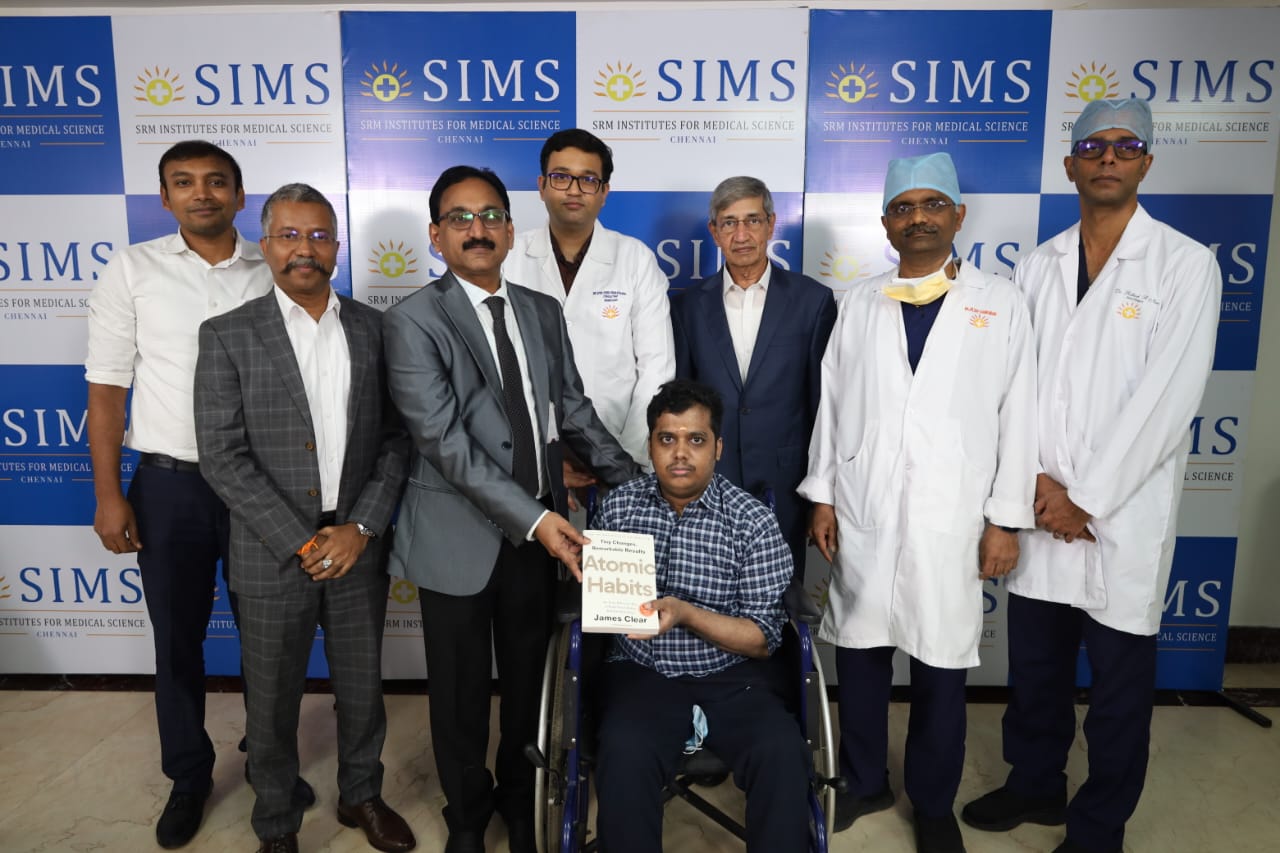Chennai, Nov 19: SIMS Hospital recently managed an exceptionally rare case of a 29-year-old man who suffered a recurrent stroke caused by a blood clot in his brain, along with simultaneous clots in his heart and leg. Multi-organ clotting with a second stroke in a young adult is considered an extraordinary medical occurrence.

The patient, previously diagnosed with Antiphospholipid Antibody Syndrome (APLA)—an autoimmune condition that increases the risk of abnormal clot formation—had his first stroke at age 26, which required emergency decompression surgery. A short interruption in his regular medication triggered this second, more severe episode. Recognizing early symptoms such as slurred speech, he immediately sought medical attention, which was crucial in preventing permanent damage.
The case was managed by a multidisciplinary team;Dr. Prabash Prabhakaran and Dr. Vivek Iyer (Neurology), Dr. Rithesh R. Nair and Dr. S. Selvin (Interventional Neurology), supported by Dr. Sairam Subramaniam (Vascular and Endovascular Surgery). The patient has been discharged, is stable, and will require lifelong medication with regular follow-up.
Dr. Vivek Iyer, Joint Director of Neurology, commented, “A 29-year-old presenting with a second stroke and clots in three major organ systems is extremely rare. It required a highly coordinated, multidisciplinary approach to manage immediate threats and secure a positive long-term outcome.”
Dr. Prabash Prabhakaran, Director and Senior Consultant, Neurology, emphasized, “Stroke can affect people of any age. This patient’s self-awareness and rapid response were instrumental in his survival. Recognizing early signs and reaching the hospital promptly gave us a critical window to intervene.”
The interventional team performed a surgical thrombectomy to remove the clot from the right femoral artery in his leg while simultaneously administering clot-dissolving medication to clear blockages in the heart and brain. Treating clots in three organs simultaneously is highly complex, as each presents unique risks and requires different treatment strategies.
Dr. Rithesh R. Nair, Director and Senior Consultant, Interventional Neurology, explained, “Our immediate goal was to restore blood flow. Performing thrombectomy in the leg while simultaneously treating the heart and brain clots highlights the advancements in interventional neurology and its ability to manage complex, multi-site clotting events.”
Experts noted that India records 1.6 million new stroke cases annually, with an incidence of 119–145 per 100,000 people. Strokes in individuals below 40 are increasing due to sedentary lifestyles, chronic stress, unhealthy diets, poor sleep, altered blood clotting patterns, and exposure to pollution and microplastics, along with traditional risk factors such as uncontrolled hypertension, diabetes, high cholesterol, smoking, and alcohol consumption.
Modern stroke treatment—including thrombolysis and mechanical thrombectomyhas significantly improved outcomes, allowing restoration of blood flow even in smaller and medium-sized vessels. However, early recognition and rapid hospital arrival remain the most critical factors for survival and recovery.